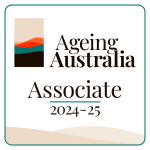Top 5 Essential Nursing Skills for NSW Healthcare in 2024

Top In-Demand Nursing Skills for 2024 in New South Wales: Mastering the Art of Modern Healthcare
In the ever-evolving landscape of healthcare, nursing in New South Wales (NSW) has undergone a remarkable transformation. From basic patient care to complex healthcare delivery, the role of nurses has expanded significantly, demanding a unique set of skills to meet the growing healthcare needs of the state. As we look towards 2024, mastering clinical competence, communication, empathy, collaboration, and leadership has become crucial for nurses in NSW to excel in their profession and provide the highest quality of care.
The Evolving Landscape of Nursing in NSW
Nursing in NSW has a rich history, marked by continuous adaptation to changing healthcare demands. From its humble beginnings focused on basic patient care, the profession has evolved into a complex and integral component of the healthcare system. This evolution has been characterized by:
- An increasing emphasis on standardized practices
- A commitment to continuous learning and professional development
- A shift towards integrated and collaborative care models
The current healthcare landscape in NSW presents unique challenges and opportunities for nurses. With a growing and aging population, the demand for healthcare services is on the rise. Simultaneously, there’s a push towards more integrated and collaborative care models, requiring nurses to expand their skill sets beyond traditional clinical competencies.
Essential Nursing Skills for 2024 in NSW
1. Clinical Competence
At the heart of nursing practice lies clinical competence. In 2024, NSW nurses are expected to possess:
- A robust understanding of medical knowledge
- The ability to apply skills in real-world scenarios
- Proficiency in evidence-based practice
Clinical competence forms the foundation of high-quality patient care. It encompasses not only theoretical knowledge but also practical skills that enable nurses to make informed decisions and provide effective interventions.
According to Associate Professor Annette Solman, Chief Executive of the Health Education and Training Institute, “Clinical competence is paramount in ensuring patient safety and optimal outcomes. The Wellbeing Nurse Capability Framework we’ve developed recognizes this as a core capability for nurses in NSW Health.”
2. Communication Skills
Effective communication is the linchpin of successful healthcare delivery. In NSW, nurses must excel in:
- Clear and concise verbal communication with patients, families, and colleagues
- Active listening to understand patient concerns and needs
- Written communication for accurate documentation and reporting
Good communication skills are crucial for:
- Reducing miscommunication in healthcare settings
- Encouraging shared decision-making between healthcare providers and patients
- Fostering collaborative environments within healthcare teams
The NSW Health Emergency Care and Assessment Treatment (ECAT) Program emphasizes the importance of communication in standardizing care across the state. By implementing consistent communication protocols, the program aims to improve patient care and staff satisfaction in emergency departments.
3. Empathy and Compassion
In an era of patient-centered care, empathy and compassion are more important than ever. NSW nurses must be adept at:
- Understanding and sharing the feelings of their patients
- Providing emotional support to patients and their families
- Balancing emotional involvement with professional boundaries
Empathy and compassion play a crucial role in:
- Holistic patient care that addresses emotional and psychological needs
- Improving patient satisfaction and outcomes
- Building trust between healthcare providers and patients
A recent study published in the Journal of Clinical Nursing found that patients who perceived their nurses as empathetic reported 30% higher satisfaction with their care and were more likely to adhere to treatment plans.
4. Collaborative Practice
The complexity of modern healthcare demands a collaborative approach. NSW nurses in 2024 must be skilled in:
- Working effectively with other healthcare professionals
- Participating in multidisciplinary teams
- Integrating nursing services in diverse settings, including schools and community health centers
Collaborative practice is essential for:
- Evidence-based decision-making in team settings
- Providing comprehensive, coordinated care
- Improving patient outcomes through a holistic approach to healthcare
The Wellbeing Health In-reach Nurse (WHIN) Coordinator Program in NSW exemplifies the importance of collaborative practice. This innovative program places dedicated Wellbeing Nurses in selected public primary and high schools, requiring them to work closely with educators, school counselors, and other health professionals to improve student health and wellbeing.
5. Nursing Leadership
Leadership skills are increasingly important for nurses at all levels. In 2024, NSW nurses should focus on developing:
- Strategic thinking and decision-making abilities
- The capacity to mentor and guide other healthcare professionals
- Skills in quality improvement and patient safety initiatives
Effective nursing leadership is crucial for:
- Guiding nursing practice and ensuring high standards of care
- Promoting a healthy work environment and staff satisfaction
- Driving innovation and change in healthcare delivery
The American Nurses Association emphasizes that “effective nursing leaders must possess skills such as communication, collaboration, education, and quality of practice to keep pace with the ever-changing healthcare environment.”
Latest Trends and Developments in NSW Nursing
Standardization of Care Practices
NSW Health has been focusing on standardizing care practices across the state to ensure consistent, high-quality care. The Emergency Care and Assessment Treatment (ECAT) Program is a prime example of this initiative, aiming to improve patient care and staff satisfaction in emergency departments.
Emphasis on Professional Development
The Wellbeing Nurse Capability Framework 2024-2029 provides a structured approach to professional development for nurses in NSW. This framework outlines foundational, adept, and advanced levels of proficiency in key domains such as clinical practice and collaborative practice.
Integration of Nursing Services in Diverse Settings
There’s a growing trend towards integrating nursing services into non-traditional healthcare settings. The WHIN Coordinator Program, which places nurses in schools, is a testament to this shift towards more holistic and community-based healthcare delivery.
How to Develop Essential Nursing Skills in NSW
- Assess Your Current Skill Level: Use the Wellbeing Nurse Capability Framework to evaluate your proficiency in key areas.
- Identify Areas for Improvement: Based on your assessment, determine which skills need development.
- Engage in Continuous Professional Development: Participate in workshops, online courses, and training programs offered by NSW Health and other accredited organizations.
- Seek Mentorship: Connect with experienced nurses who can provide guidance and share their expertise.
- Participate in Interprofessional Education: Engage in learning opportunities that involve collaboration with other healthcare professionals.
- Stay Updated with Latest Research: Regularly read nursing journals and attend conferences to stay abreast of the latest developments in healthcare.
- Practice Reflection: Regularly reflect on your experiences and identify areas for personal and professional growth.
FAQ: Nursing Skills in NSW for 2024
How can nurses in NSW stay updated with the latest healthcare technologies?
Engage in regular training sessions offered by NSW Health, attend industry conferences, and participate in technology-focused workshops. Many hospitals also offer in-house training on new equipment and digital health records systems.
What role do cultural competency skills play in nursing in NSW?
Cultural competency is crucial due to NSW’s diverse population. It enables nurses to provide culturally sensitive care, improve patient outcomes, and reduce health disparities. NSW Health often provides cultural competency training as part of ongoing professional development.
Are there specific mental health nursing skills in high demand in NSW?
Yes, skills in crisis intervention, trauma-informed care, and understanding of diverse mental health conditions are increasingly valuable. The NSW Mental Health Nursing Program offers specialized training in these areas.
How can nurses in NSW contribute to healthcare policy development?
Nurses can join professional associations like the NSW Nurses and Midwives’ Association, participate in public health initiatives, and engage with local health districts to influence policy decisions. Many health services also have nursing advisory committees that contribute to policy development.
What opportunities exist for nurses in NSW to specialize in emerging healthcare fields?
Opportunities in telehealth, genomic nursing, and environmental health nursing are growing. NSW Health offers specialized training programs in these areas, and many universities in NSW are developing postgraduate courses in emerging healthcare fields.
Challenges and Solutions in NSW Nursing
Challenges:
- Workforce Shortages: Certain areas of NSW, particularly rural and remote regions, face significant nursing shortages.
- Balancing Standardization with Flexibility: While standardized care protocols are important, there’s a need to maintain flexibility to address diverse patient needs.
Solutions:
- Targeted Recruitment and Retention Strategies: NSW Health is implementing programs to attract nurses to underserved areas, including rural placement initiatives and financial incentives.
- Adaptive Care Models: Developing frameworks that allow for local customization within a standardized approach, ensuring both consistency and flexibility in care delivery.
Conclusion
As we approach 2024, the nursing profession in New South Wales continues to evolve, demanding a diverse and sophisticated skill set from its practitioners. By focusing on clinical competence, communication, empathy, collaboration, and leadership, nurses in NSW can position themselves at the forefront of healthcare delivery.
The emphasis on standardized practices, continuous learning, and integrated care models reflects the state’s commitment to improving patient outcomes and enhancing the nursing profession. Programs like the ECAT and the WHIN Coordinator initiative demonstrate NSW’s innovative approach to healthcare delivery.
For nurses in NSW, the key to success lies in embracing these changes, continuously developing their skills, and adapting to the evolving healthcare landscape. By doing so, they not only enhance their own professional growth but also contribute significantly to the health and wellbeing of the communities they serve.
As we look to the future, it’s clear that the nursing profession in NSW is not just about providing care – it’s about leading the way in healthcare innovation, collaboration, and excellence. The skills discussed in this article are not just desirable; they are essential for nurses who wish to thrive in this dynamic and rewarding field.
Additional Resources
- Wellbeing Nurse Capability Framework 2024-2029
- NSW Health Website
- NSW Nurses and Midwives’ Association
By continually developing these critical skills and staying informed about the latest developments in healthcare, nurses in NSW can ensure they are well-prepared to meet the challenges and opportunities that lie ahead in 2024 and beyond.









